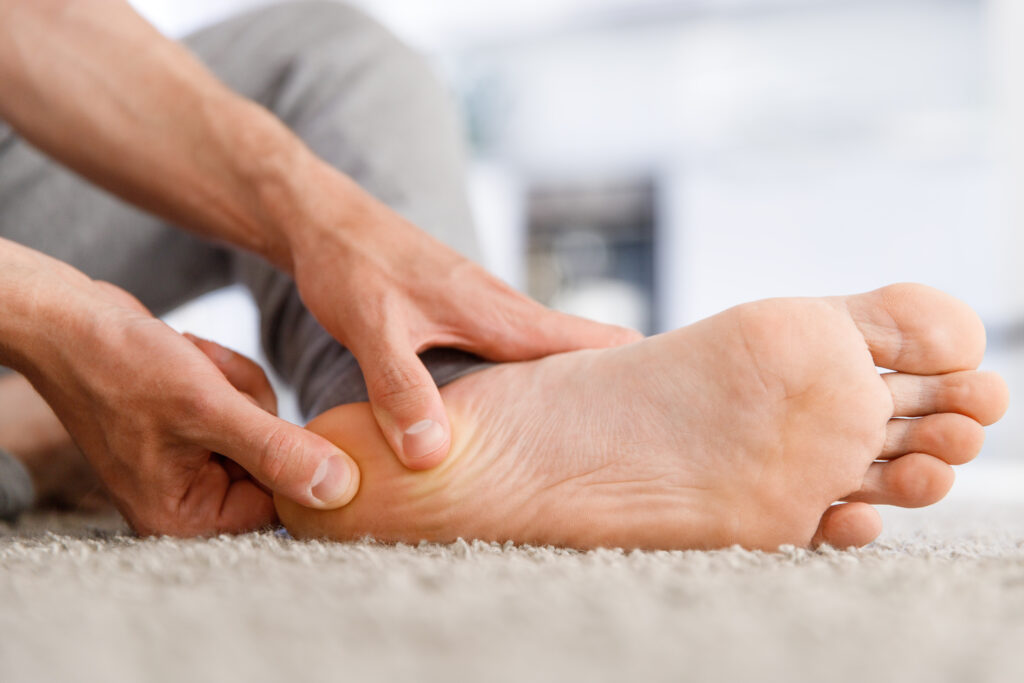
What is plantar heel pain?
Plantar heel pain is one of the most common causes of foot discomfort. It typically affects the underside of the heel and is often due to plantar fasciitis, inflammation of the plantar fascia, a strong band of tissue that supports the arch of the foot.
It can affect both active and inactive people and may develop gradually without a specific injury.
Symptoms
- Pain under the heel, especially with the first steps in the morning or after rest
- Pain that improves with movement but worsens after prolonged standing or walking
- Tenderness when pressing on the bottom of the heel
- Occasional sharp or burning sensation
Common risk factors
- Prolonged standing or walking
- Sudden increase in activity or running
- Poor footwear or walking barefoot
- Tight calf muscles or limited ankle movement
- Obesity or increased body weight
Diagnosis
- Usually based on your symptoms and a physical examination
- Imaging (e.g. X-ray or ultrasound) is very rarely needed unless symptoms persist or another condition is suspected
Self-care and management
1. Rest and activity modification
- Reduce activities that aggravate your symptoms
- Avoid walking barefoot on hard surfaces
- Modify work or daily routines if needed
2. Footwear and insoles
- Wear supportive, cushioned shoes
- Consider using gel heel cups or orthotic insoles
3. Ice therapy
- Apply an ice pack (wrapped in a towel) to the heel for 10 to 15 minutes, 2 to 3 times daily
- Avoid direct contact with skin to prevent ice burns
4. Pain relief
- Use over-the-counter painkillers like paracetamol or ibuprofen
- Topical anti-inflammatory creams may also help
5. Stretching and strengthening exercises
Do these daily to relieve tension and improve foot mechanics:
- Calf stretches
- Plantar fascia stretch (rolling foot over a cold bottle or ball)
- Towel scrunches (using toes to pull a towel)
When to seek medical advice
- Pain persists beyond 6 to 8 weeks despite self-care. Consider seeing your GP or self-referring to the MSK service.
- You experience numbness, tingling, or swelling in the area. Consider seeing your GP.
Outlook
- Most people recover within 6 to 12 months with consistent self-care
- If symptoms persist, referral to MSK rehabilitation or podiatry may be beneficial
- Rarely, further treatments such as steroid injections or shockwave therapy* may be considered
*where provided by NHS services – local variation applies